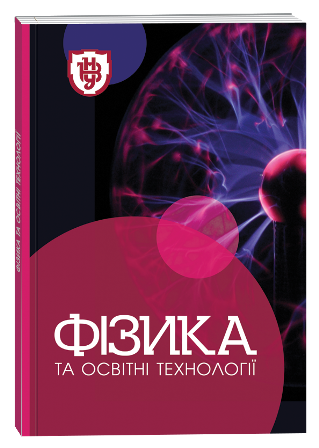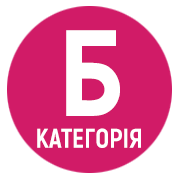METHODOLOGICAL ASPECTS OF LEARNING OBJECT-ORIENTED PROGRAMMING IN HIGHER EDUCATION INSTITUTIONS
DOI:
https://doi.org/10.32782/pet-2023-4-1Keywords:
paradigm, methodology, object-oriented programming, competence, Java, class, object, inheritance, encapsulation, polymorphismAbstract
The article reveals the methodological aspects of forming professional competences of future specialists in the field of information technology on the basis of object-oriented programming. It is emphasized that OOP fully corresponds to the usual human thinking. Unlike procedural-oriented programming, OOP facilitates the development and use of programs in the case of code growth with increasing project size, provides data hiding, and allows for much more effective simulation of real-world events. The current state of development of the problem of teaching object-oriented programming in higher education is analyzed. It is established that in the process of studying OOP, higher education students face difficulties associated with the complexity of the object-oriented paradigm, their ability to solve applied problems using classes of different objects and their interaction. A methodology for teaching OOP in higher education institutions is proposed, which is based on students' understanding of the fundamental concepts and provisions of OOP, the relationship between classes and objects, and the formation of an object-oriented programming style. The study of OOP begins with a consideration of the essence of the concepts of class and object, revealing the differences between them. It is noted that a class can contain fields, methods, constructors, blocks, a nested class, and an interface. When considering the concepts of field and method, it is emphasized that the method is used to reuse the code and optimize it. Considering the types of methods, special attention is paid to user methods, their description and use. It is emphasized that a static method can be called without creating an object, and an abstract method has no implementation. Considering the concept of a constructor, it is emphasized that its purpose is to initialize an object. After that, the differences between a constructor and a method are revealed. When studying the principles of OOP, it is emphasized that encapsulation allows you to hide data and control access to it. Inheritance involves creating new classes that are built on existing classes. Polymorphism allows you to perform the same action in different ways. Abstraction allows you to hide implementation details and show the essential properties of the object or phenomenon under study. It is emphasized that the effectiveness of teaching OOP largely depends on the intensification of students' learning and cognitive activities, their ability to create projects using an object-oriented approach.
References
Азаров О.Д., Черняк О.І., Савицька Л.А. Аспекти критичного підходу до викладання поняття поліморфізму в об’єктноорієнтованому програмуванні. Інформаційні технології та комп’ютерна інженерія. 2017. Т. 39. № 2. С. 31–34.
Зубик Л.В. Формування професійних компетентностей майбутніх бакалаврів з інформаційних технологій у процесі вивчення фахових дисциплін: дис.… канд. пед. наук : 13.00.04 / Національний університет водного господарства та природокористування. Рівне, 2016. 341 с.
Конюхов С.Л. Організаційно-методичні умови формування професійної компетентності майбутніх інженерів-програмістів у процесі вивчення об’єктноорієнтованого програмування. Фізико-математична освіта. 2019. Випуск 4 (22). С. 68–74.
Конюхов С.Л. Професійна підготовка майбутніх інженерів-програмістів у процесі вивчення об’єктноорієнтованого програмування як проблема сучасної педагогічної науки. Науковий вісник Мелітопольського державного педагогічного університету. Серія: Педагогіка. 2018. № 1 (20). С. 166–172.
Лещук С.О. Окремі методичні аспекти підготовки ІТ-фахівців. Інформаційні технології в освіті. 2017. № 1(30). С. 81–96.
Теплицький О.І. Засоби навчання об’єктноорієнтованого моделювання студентів природничих спеціальностей педагогічних університетів. Збірник наук. праць Кам’янець-Подільського нац. ун-ту. Серія педагогічна. Кам’янець-Подільський : Кам’янець-Подільський нац. ун-т імені Івана Огієнка, 2011. Вип. 17 : Інноваційні технології управління компетентнісно-світоглядним становленням учителя: фізика, технології, астрономія. С. 246–248.
Теплицький О.І. Об’єктноорієнтоване моделювання в системі фундаменталізації підготовки майбутнього вчителя інформатики. Збірник наукових праць. Педагогічні науки. Вип. 50. Херсон : Видавництво ХДУ, 2008. Ч. 2. С. 285–288.
Ehlert A., Schulte C. (2009). Empirical comparison of objects-first and objects-later. Proceedings of the fifth international workshop on Computing education research workshop. 15–26. https://doi.org/10.1145/1584322.1584326
Pasa Uysal M. (2012) The Effects of Objects-First and Objects-Late Methods on Achievements of OOP Learners. Journal of Software Engineering and Applications. 5. 10. 816–822. http://dx.doi.org/10.4236/jsea.2012.510094








